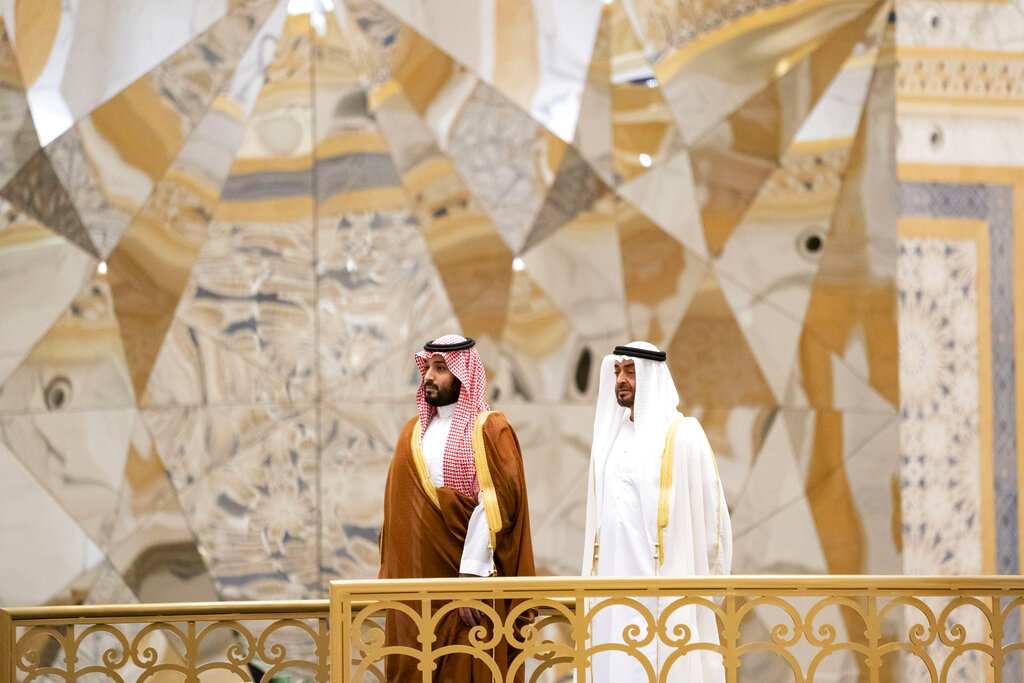ADF STAFF
Two Gulf countries are playing an outsized role in Sudan’s civil war as they compete for diplomatic and military influence.
Rivals Saudi Arabia and the United Arab Emirates (UAE) have been accused of making Sudan’s conflict more intractable by taking opposing sides.
Despite its denials, the UAE reportedly is giving military support to the Rapid Support Forces (RSF) headed by Mohammed Hamdan “Hemedti” Dagalo. Saudi Arabia is closely aligned with Egypt, which supports the Sudanese Armed Forces, and has tried to cast itself in the role of mediator.
The Gulf states had been allies for decades, but the relationship between Saudi Arabia’s Crown Prince Mohammed bin Salman Al Saud and Emirati President Mohammed bin Zayed has deteriorated.
“Observers and political insiders have in recent weeks speculated that differences between Abu Dhabi and Riyadh have reached a point where the Saudi crown prince and the Emirati president are no longer on speaking terms,” Amwaj news website reported in a May 27 article.
The two countries began developing different relationships with Sudan in the final years of Omar al-Bashir’s regime. Bashir supplied RSF fighters to the Saudi-Emirati intervention in Yemen’s civil war.
In the wake of Bashir’s ouster in 2019, Saudi Arabia and the UAE aligned in Sudan, as both played roles in the country’s brief democratic transition. Since then, however, the two states have grown apart, both in their objectives in Yemen and Sudan.
Sudan’s military coup in 2021 set the stage for today’s civil war between the RSF and the Sudanese Armed Forces (SAF), led by Gen. Abdel Fattah al-Burhan.
“As emerging Middle East hegemons, Riyadh and Abu Dhabi are now at odds — each seeking to control Sudan’s resources, energy, and logistics gateways by aligning with Burhan and Hemedti, respectively,” Middle East scholar Talal Mohammad wrote in a 2023 article for Foreign Policy magazine.
An independent consultant in government affairs, geopolitics and strategic intelligence, Mohammad feels both countries are using Sudan in a geopolitical tug-of-war.
“For Saudi Arabia, controlling Sudan could enhance its stature as a regional leader and strengthen its influence in the Arab and Islamic worlds,” Mohammad told The Africa Report magazine. “On the other hand, the UAE sees Sudan as a means to weaken Riyadh’s dominance in the region and expand its power.
“For the Saudis, food security and the Red Sea security are paramount. For the UAE, gold, mineral resources and a presence on the Red Sea and, therefore, influence over the commercial routes between the Suez Canal and the Bab el-Mandeb strait are very important.”
The UAE is aligned with Russia in supporting the RSF, as Hemedti is a key partner in the Emirati gold industry that has helped mitigate the impact on Russia of international sanctions for its war on Ukraine.
The UAE increasingly has taken a military role in its African affairs. It reportedly established a military base in Amdjarass, Chad, where it facilitates military support to Hemedti — an allegation deemed “credible” by the United Nations but denied by Abu Dhabi.
“The UAE controls the entire illegal arms trade into Sudan that is benefitting the RSF through Uganda and Chad,” Associate Professor at Kings College London Andreas Krieg told The New Arab website for a May 14 article. “This is all part of the UAE’s quest for relevance, becoming a key broker and interlocutor between non-state actors it controls and great powers.”
The U.N. has estimated the Sudanese war’s death toll at 15,000 and said nearly 9 million have fled their homes. Analysts say the U.N.’s death toll likely is grossly underestimated, as the country is too dangerous for observers.
With their complex webs of supporters, the SAF and RSF have fought to something of a stalemate. Experts widely believe that neither side is capable of outright victory, leaving Saudi Arabia and the UAE in a state of simmering rivalry in East Africa.
“The fall of Sudan under the control of either Burhan or Hemedti — and thereby either the Saudi or Emirati sphere of influence — would shift the balance of power in the Gulf and escalate tensions between Riyadh and Abu Dhabi,” Mohammad wrote. “But it is unlikely that the outcome of the war will be this clear-cut: Similar to Libya, Sudan is likely to fracture even further, perhaps along ethnic and tribal lines.”
War correspondent Lindsey Hilsum echoed those concerns in her May 2024 reporting for Independent Television News.
“If the parties aren’t forced to negotiate, what will be left of Sudan?” she asked. “Nothing that can be reassembled, but a failed state in a forever war, its people dispersed and destitute.”

